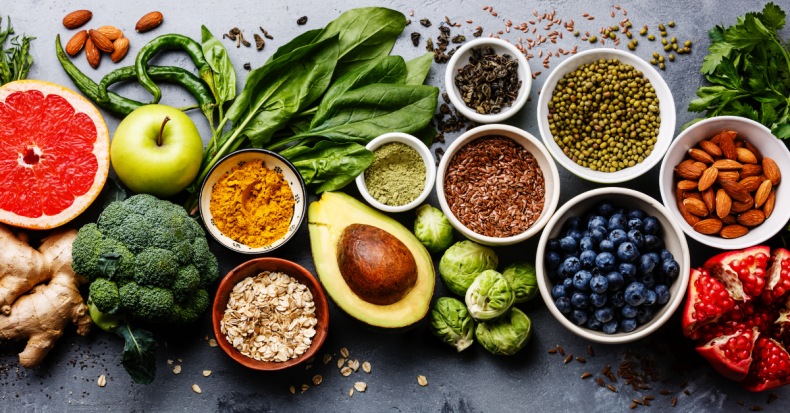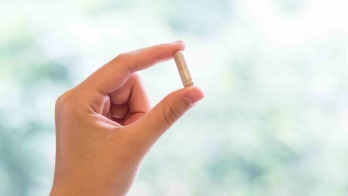Cellular aging and longevity - here’s what you need to know
Emerging research shows that a few key diet and lifestyle strategies can help delay cellular aging. If you want to increase your odds of reaching triple digits, here’s what you need to know about theories of aging, cellular senescence, and longevity.

We all face aging, yet many of us are looking for ways to reverse the hands of time. There is no shortage of ways to attempt a more youthful appearance, from skin treatments and supplements to trendy diets and plastic surgery. While you can reduce many of the physical signs of aging, science shows you can’t camouflage your internal clock.
Emerging research suggests genetics and cellular aging play a role in longevity and can significantly impact your lifespan, for better or for worse. To optimize how you age and add healthy years to your life, you should understand the factors that influence longevity, as well as some of the main theories on aging.
What is longevity?
By definition, longevity is the amount of time someone lives, though it is also used to reference a long (or a great duration of) life [ 1
As of 2022, the average lifespan in the USA is approximately 79 years, which dropped slightly in 2020 due to the COVID-19 pandemic [
2
,3
].
The main goal of longevity is to reach your maximum potential age, which is primarily influenced by your genetics and lifestyle choices. You can significantly increase your longevity by adopting healthful behaviors and attitudes.
What impacts longevity?
Evidence-based studies indicate that longevity is based on two major factors: your genetics and your lifestyle choices [ 22
Genetics. Your lifespan could be correlated to genetics; if you have triple digits in your family, you may have a higher chance of inheriting those genes.
Lifestyle. Generally speaking, the healthier your lifestyle is, the higher your chances are of living longer and even reaching triple digits. Research backs this up and shows that people who adopt a healthy lifestyle live an additional 6-7 years compared to those who don’t [
4
].Diet. Eating a diet rich in whole grains, vegetables, fruits, nuts, and black coffee is associated with a reduced risk for all-cause mortality [
5
].Sleep. Research shows that morbidity and mortality rates increase if you don’t get enough quality sleep each night [
6
].Stress levels. While we all experience stress, studies have found that chronic stress can shorten your life expectancy by 2.8 years [
7
].Physical activity. A review of scientific literature found that regular physical activity is associated with an increase of life expectancy by 0.4 to 6.9 years [
23
].

Theories of aging
Longevity research has boomed in recent years, particularly in the areas of genetic and cellular aging. Scientists are investigating how and why we age, and also how aging might be delayed, reversed, or avoided altogether.
The genetic theory of aging
The genetic theory of aging states that your lifespan is determined by the genetic code inherited from your parents [ 8
However, studies have found that genetics only account for 25% of your lifespan; the rest depends on lifestyle, environmental, and dietary choices [ 10
Cellular aging
The cellular aging theory suggests that, as you age, your cells become less healthy and lose their ability to function correctly [ 11 9 11

How to boost longevity and delay cellular aging
While there is no silver bullet to living a longer life, science has shown that adopting a healthy lifestyle and diet can slow cellular aging and potentially add healthy years to your life. So here’s the science behind how your diet and lifestyle impact cellular aging and how you can boost your longevity with healthful changes.
Eat a nutritious diet. Studies have shown that limiting processed foods and consuming a healthy diet rich in fruits, vegetables, whole grains, and lean protein can slow cellular aging and improve longevity [
12
]. Moreover, other research suggests that intermittent fasting can positively impact physiological processes like hormone function, cellular regeneration, and metabolism, contributing to a reduced risk of all-cause mortality [13
].
Learn more about other ways that
intermittent fasting can improve longevity
.
Stay active. Exercise has many health benefits, but experts have found that it can reduce the mental effects of aging and benefit your health on a cellular level by reducing age-associated inflammation [
14
,15
]. Emerging research shows that those who participate in high levels of exercise tend to have nine years less aging at the cellular level than those who are sedentary or moderately active [16
].Avoid tobacco. Those who smoke tend to have shorter telomeres than those who don’t; as such, studies conclude that smoking and exposure to second-hand smoke can significantly increase the risk of age-related disease and mortality [
17
].Maintain a healthy weight. Studies suggest that being obese can accelerate the aging process by prematurely promoting the senescent state of cells [
18
]. As such, maintaining a healthy weight has been shown to delay aging, increase your lifespan, and potentially decrease the cellular senescence burden [18
].Drink alcohol in moderation. While winding down with an alcoholic beverage can be enjoyable, drinking excess alcohol can damage your health since cells tend to age in correlation to how much you consume. The research has found that people who consume more than two drinks/day have shortened telomere lengths, increasing their risk of cardiovascular disease, diabetes, cancer, and dementia [
19
]. Moreover, excessive drinking can increase your risk for inflammatory bowel disease, cancer, and brain damage, all of which can negatively impact your lifespan.Reduce stress. Studies suggest that chronic stress negatively affects brain health and cognitive decline through inflammation, epigenetic changes, and autophagy disturbances associated with cellular senescence [
20
,21
]. Learn more about ways to reduce stress levelshere
.
Summary
Emerging research suggests that you could delay cellular aging with a few key strategies. By reducing alcohol consumption to eating well and staying active, you can increase the chances of living a longer, healthier life.
Disclaimer: The text, images, videos, and other media on this page are provided for informational purposes only and are not intended to treat, diagnose or replace personalized medical care.
Key takeaways
Emerging studies show that genetics and cellular aging play a role in longevity.
Cellular aging suggests that, as you age, your cells become less healthy and lose their ability to function properly [
11
].Studies have shown that limiting processed foods and consuming a nutritious diet rich in fruits, vegetables, whole grains, and lean protein can slow cellular aging and improve longevity [
12
].Experts have found that exercise can reduce the mental effects of aging and benefit your health on a cellular level by reducing age-associated inflammation [
14
,15
].Maintaining a healthy weight has been shown to delay aging, increase your lifespan, and potentially decrease cellular senescence burden [
18
].
References
Wong, D. W., Hall, K. R., & Hernandez, L. W. (2021). Counseling individuals through the lifespan. Amazon. Retrieved February 4, 2022, from
https://www.amazon.com/Counseling-Individuals-Lifespan-Professional-Identity/dp/1452217947
U.S. Life Expectancy 1950-2022. MacroTrends. (n.d.). Retrieved February 4, 2022, from
https://www.macrotrends.net/countries/USA/united-states/life-expectancy
Centers for Disease Control and Prevention. (2021, July 21). Life expectancy in the U.S. declined a year and half in 2020. Centers for Disease Control and Prevention. Retrieved February 4, 2022, from
https://www.cdc.gov/nchs/pressroom/nchs_press_releases/2021/202107.htm
Healthy lifestyles increase life expectancy in people with multiple conditions (multimorbidity) by as much as in other groups. (2021).
https://doi.org/10.3310/alert_46468
Ekmekcioglu C. (2020). Nutrition and longevity - From mechanisms to uncertainties. Critical reviews in food science and nutrition, 60(18), 3063–3082.
https://doi.org/10.1080/10408398.2019.1676698
Jean-Louis, G., Grandner, M. A., & Pandi-Perumal, S. R. (2021). Sleep health and longevity—considerations for personalizing existing recommendations. JAMA Network Open, 4(9).
https://doi.org/10.1001/jamanetworkopen.2021.24387
National Institute for Health and Welfare. (2020, March 11). Heavy stress and lifestyle can predict how long we live. ScienceDaily. Retrieved February 4, 2022 from
www.sciencedaily.com/releases/2020/03/200311100857.htm
Jin K. (2010). Modern Biological Theories of Aging. Aging and disease, 1(2), 72–74.
https://www.ncbi.nlm.nih.gov/pmc/articles/PMC2995895/
Ishikawa, N., Nakamura, K.-I., Izumiyama-Shimomura, N., Aida, J., Matsuda, Y., Arai, T., & Takubo, K. (2016). Changes of telomere status with aging: An update. Geriatrics & Gerontology International, 16, 30–42.
https://doi.org/10.1111/ggi.12772
Passarino, G., De Rango, F., & Montesanto, A. (2016). Human longevity: Genetics or lifestyle? It takes two to Tango. Immunity & Aging, 13(1).
https://doi.org/10.1186/s12979-016-0066-z
van Deursen J. M. (2014). The role of senescent cells in aging. Nature, 509(7501), 439–446.
https://doi.org/10.1038/nature13193
University of Michigan. (2018, August 20). Healthy diet linked to healthy cellular aging in women. ScienceDaily. Retrieved February 4, 2022 from
www.sciencedaily.com/releases/2018/08/180820164248.htm
Horne, B. D., Bartholomew, C., Anderson, J. L., May, H. T., Knowlton, K. U., Bair, T. L., LE, V. T., Bailey, B. W., Muhlestein, J. B. (2019, November 11). Abstract 11123: Intermittent fasting lifestyle and human longevity in cardiac catheterization populations. Circulation. Retrieved February 4, 2022, from
https://www.ahajournals.org/doi/10.1161/circ.140.suppl_1.11123
Rebelo-Marques, A., De Sousa Lages, A., Andrade, R., Ribeiro, C. F., Mota-Pinto, A., Carrilho, F., & Espregueira-Mendes, J. (2018). Aging Hallmarks: The Benefits of Physical Exercise. Frontiers in endocrinology, 9, 258.
https://doi.org/10.3389/fendo.2018.00258
Carapeto, P. V., & Aguayo-Mazzucato, C. (2021). Effects of exercise on cellular and tissue aging. Aging, 13(10), 14522–14543.
https://doi.org/10.18632/aging.203051
Brigham Young University. (2017, May 10). High levels of exercise linked to nine years of less aging at the cellular level: New research shows a major advantage for those who are highly active. ScienceDaily. Retrieved February 4, 2022 from
www.sciencedaily.com/releases/2017/05/170510115211.htm
Astuti, Y., Wardhana, A., Watkins, J., Wulaningsih, W., & PILAR Research Network (2017). Cigarette smoking and telomere length: A systematic review of 84 studies and meta-analysis. Environmental research, 158, 480–489.
https://doi.org/10.1016/j.envres.2017.06.038
Maduro, A. T., Luís, C., & Soares, R. (2021). Aging, cellular senescence and the impact of Diet: An overview. Porto Biomedical Journal, 6(1).
https://doi.org/10.1097/j.pbj.0000000000000120
Research Society on Alcoholism. (2017, June 26). Drinking makes you older at the cellular level. ScienceDaily. Retrieved February 4, 2022 from
www.sciencedaily.com/releases/2017/06/170626105322.htm
Sikora, E., Bielak-Zmijewska, A., Dudkowska, M., Krzystyniak, A., Mosieniak, G., Wesierska, M., & Wlodarczyk, J. (2021). Cellular Senescence in Brain Aging. Frontiers in aging neuroscience, 13, 646924.
https://doi.org/10.3389/fnagi.2021.646924
Lin, Y.-F., Wang, L.-Y., Chen, C.-S., Li, C.-C., & Hsiao, Y.-H. (2021). Cellular senescence as a driver of cognitive decline triggered by chronic unpredictable stress. Neurobiology of Stress, 15, 100341.
https://doi.org/10.1016/j.ynstr.2021.100341
Reaching Toward the Fountain of Youth - USC News. (2010, December 7). USC News. Retrieved February 7, 2022, from
https://web.archive.org/web/20101213203112/http://uscnews.usc.edu/health/reaching_toward_the_fountain_of_youth.html
Reimers, C. D., Knapp, G., & Reimers, A. K. (2012). Does physical activity increase life expectancy? A review of the literature. Journal of aging research, 2012, 243958.
https://doi.org/10.1155/2012/243958





